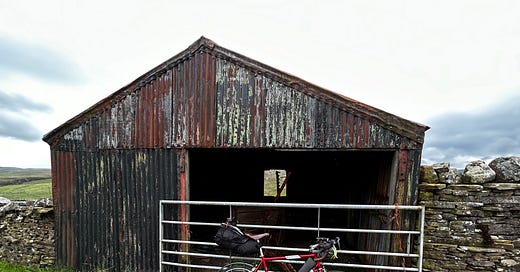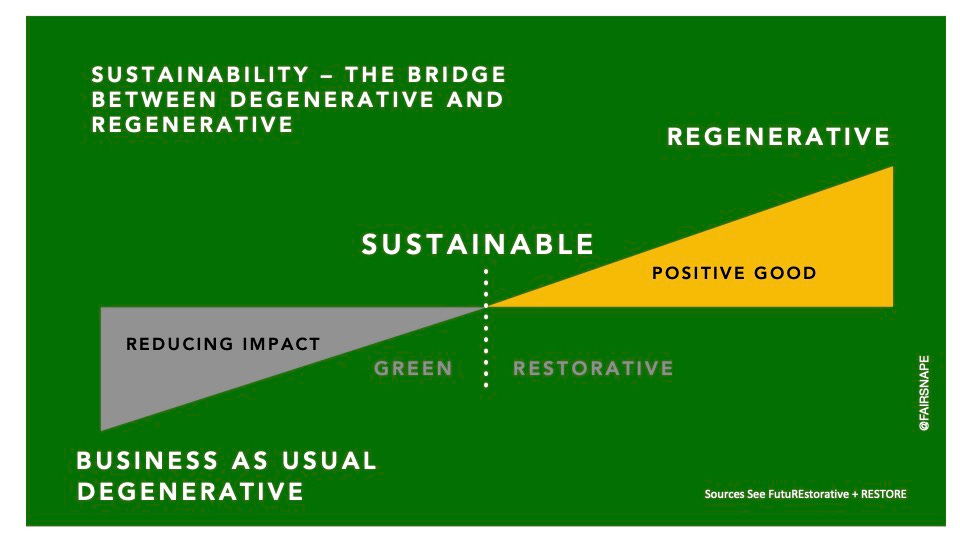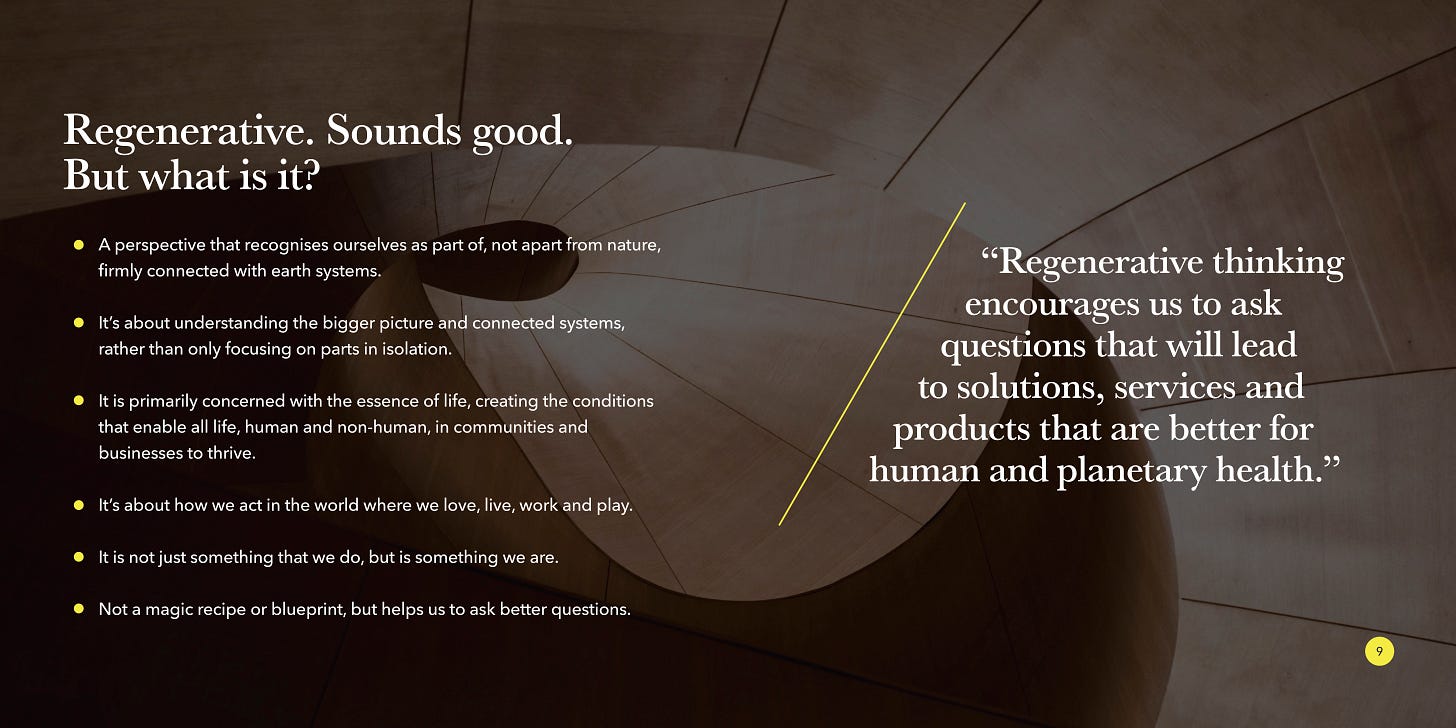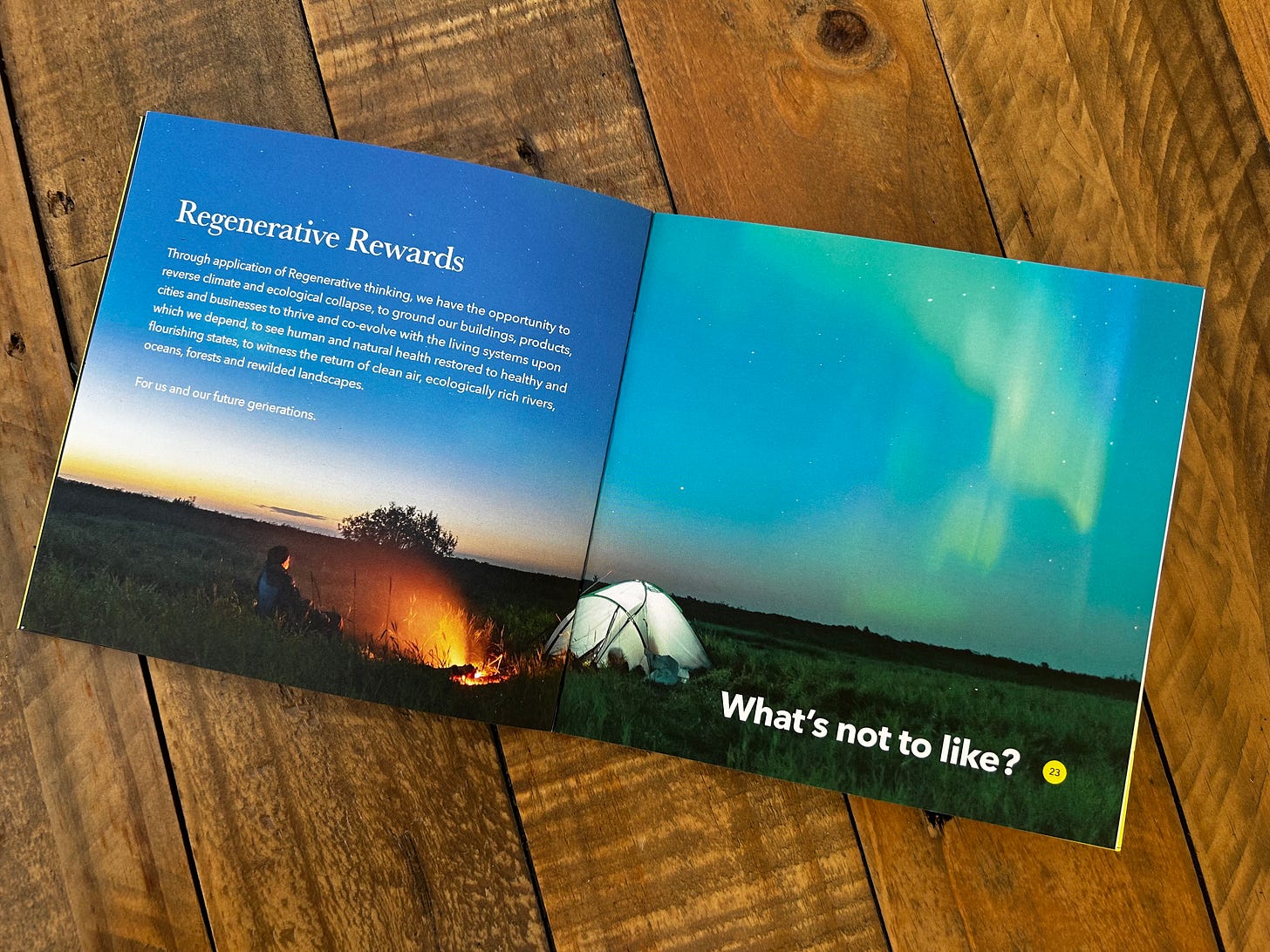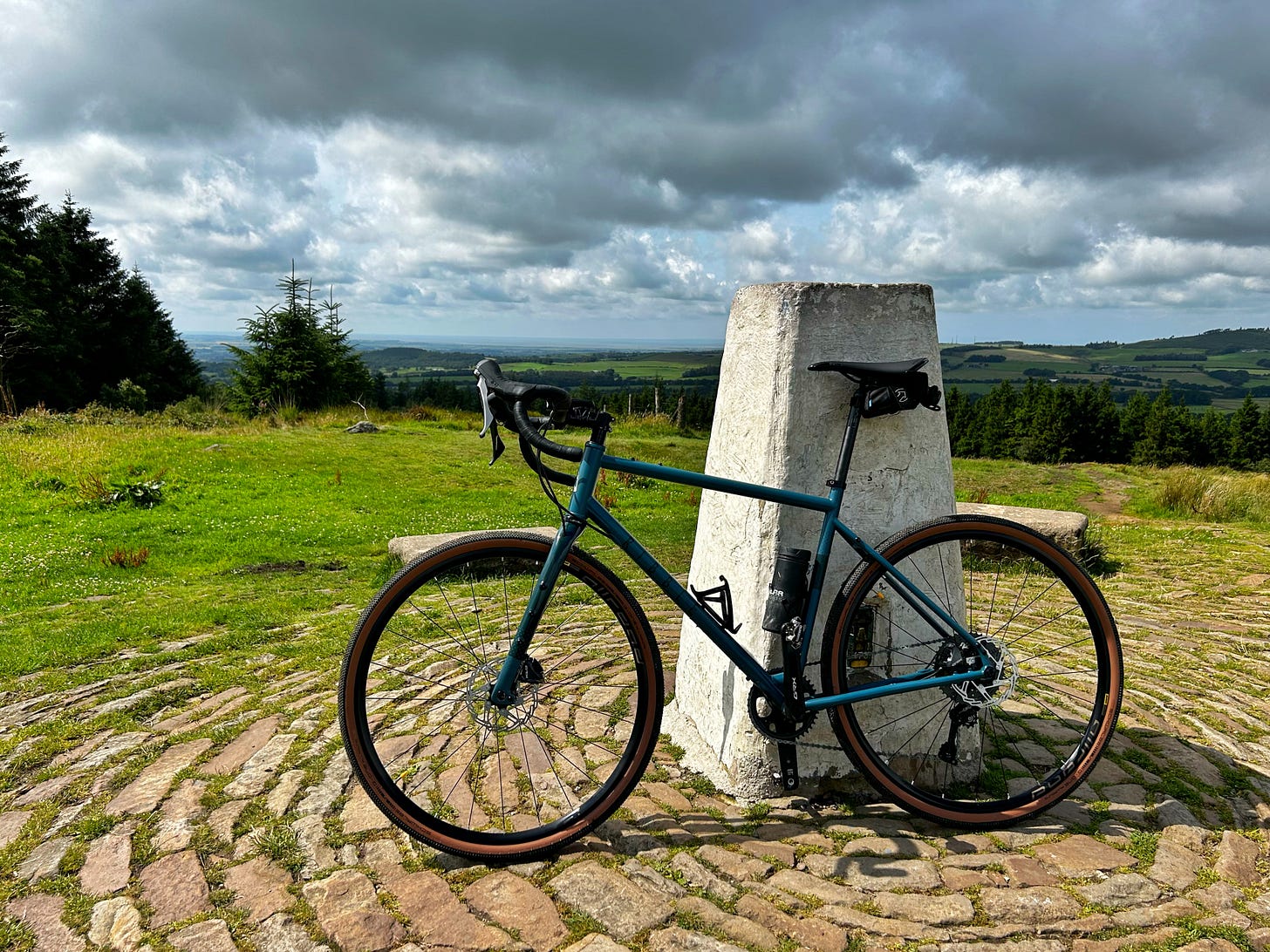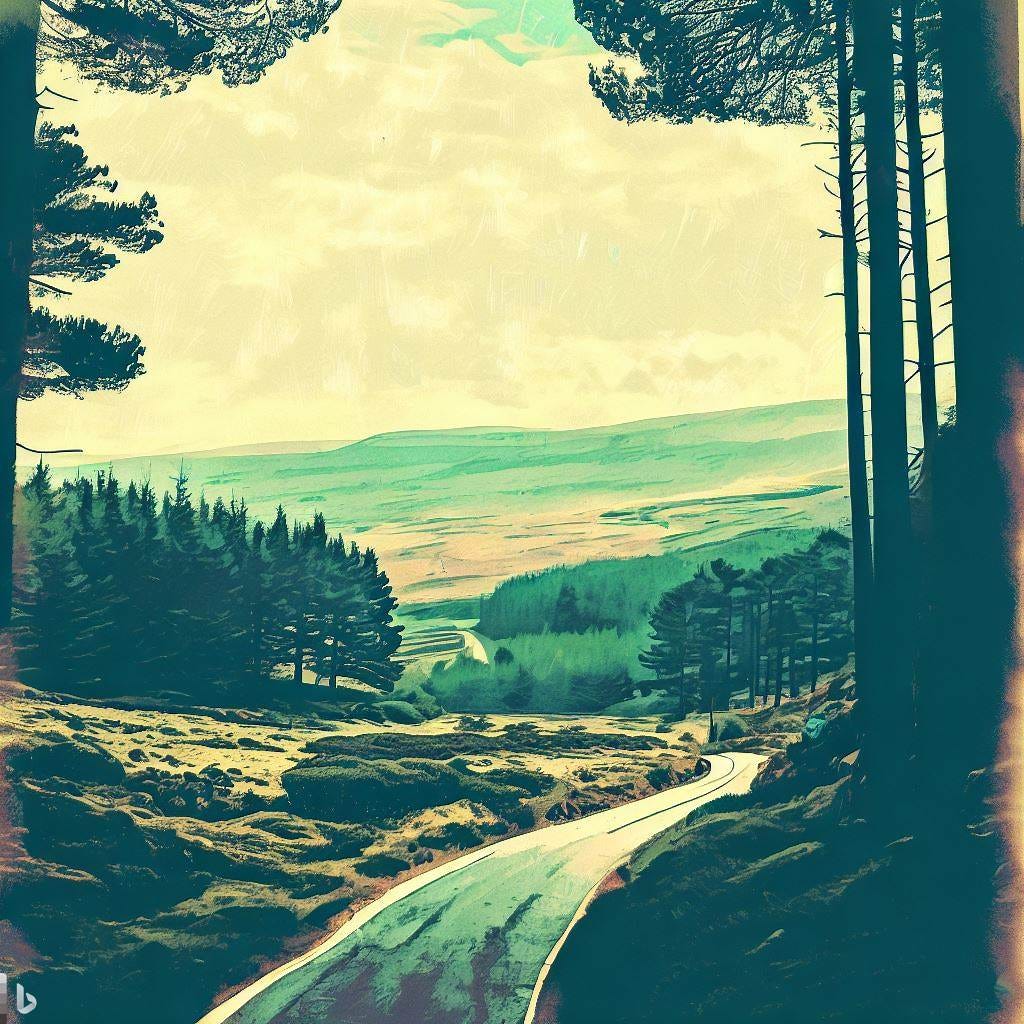Welcome and thank you for choosing to read Regen Notes.
Regen/ Notes is a reader-supported publication and all subscriptions are highly appreciated.. You can subscribe for free, however if you value and enjoy these newsletters then for the cost of just one coffee a month you can subscribe to receive new posts and support the continuity of Regen/Notes.
Roads less travelled
Last month we cycled out of our village, on very familiar roads (used for those daily short ‘thinking time’ cycles up around our local fell, or into local town social or shopping trip).
On this occasion those same roads led on to a trip of around 300 miles, taking in the Way of the Roses, east across the Forest of Bowland hills, through the stunning Yorkshire Dales and Wolds to the East Coast. Then north to Whitby via Scarborough and the Cinder Track before heading back west on the less well-known W2W ‘Whitby to Walney’ along the top of the North York Moors, threading up through awesome Swaledale villages and then home via Kirby Stephen and south from Kendal.
Time at a Buddhist Peace Cafe, great accommodation and local food, cycle adventures and mishaps, (a new wheel in Scarborough thanks to a great ‘rescue’ service from Dave at Yorkshire Coast Cycles) made for a wonderful break, cycling out from and back to our front door.
The experience once again left a deep appreciation for the joy of cycle exploration, inspiring us to seek more adventures beyond the familiar local roads and tracks.
Alastair Humphreys writes about this in Doorstep Mile, where in essence, the hardest step is getting beyond that doorstep mile, but then all sorts of adventures and potentials open to us.
“I knew when I had looked for a long time that I had hardly begun to see” Nan Shepherd
Nan Shepherd in The Living Mountian (mentioned so many times in Regen Notes) has a great perspective on this - looking at the familiar through an unfamiliar lens. in this case, upside-down through her legs. (An exercise now built into my reconnecting with nature suite of exercises and biophilia walks!)
Merryn Glover’s recent The Hidden Fires: A Cairngorms Journey with Nan Shepherd shares her experience of doing just that …
My heart stops. The world hangs above space; at the top, a cathedral dome of snow and rock, then frescoes of forested valleys and lochs, all suspended above an emptiness of blue.
It is so striking and beautiful it triumphs over my fear and stills me. Then comes the strangest feeling of sliding on my back down a snow bank, swift and free, childlike. Unafraid. Not just the world, but I, too, have become new.
And that is another leaf I take from Shepherd’s book: to come to the mountain like a child. To experience it with the playfulness and total, full-bodied presence of the very young, before the clarity of our encounters have been clouded by history, assumptions, preoccupations and analysis. The route to this direct engagement, suggests Shepherd, is through the senses. ‘Each sense heightened to its most exquisite awareness, is in itself a total experience.
This is the innocence we have lost.’
What If
What if we were to apply this to our approach to sustainability? Asking the question why stop on the familiar processes we follow week in and week out. What if we explored potential, embraced a little emergence, and pushed that design brief a little, go beyond the business-as-usual environmental management plan, or site waste management plan?
What ‘innocence’ have we lost through energy-sapping, restrictive processes, approaches and thinking that only seek to reduce impact?
Within the Regenerative Playbook, we introduce regenerative thinking as asking better questions, more what-if questions and giving the time and space to reflect - and of course also giving that time/space to those we work with.
But what does (regenerative) mean? As this playbook shows, it means asking different and better questions, ones which can help us to recognise and work with the true interdependencies of our living world; it means nurturing the potential that all people and communities already have to be sources of health for all life on earth and giving that potential space to grow and be realised; and it means working not only to change ‘out there’ but also to change ‘in here’, our own mindsets and behaviours, and those of our organisations.
To effectively address the climate and biodiversity crisis we are facing, we must transcend the comfort of familiar approaches and repetitive processes, which only yield limited success in reducing our impact. Instead, we need to venture beyond our Doorstep Mile, look anew and embrace our roads less travelled.
By doing so, we open ourselves to exciting opportunities, creativity, and exploration of new territories, pushing the boundaries of what is possible. Embracing sustainability as a regenerative concept, we can build upon our potential to make positive changes rather than being constrained by a mindset focused solely on restrictions and limitations.
Cycle Note
Just after our Way of the Roses cycle, I upgraded my ride, from my 7-year-old Genesis Equilibrium (which had clocked up some 41000 miles as recorded on Stava) to a Ribble Gravel with better gearing for hills and better ability to get off-road, embrace more slow cycling and explore more gravel, forest and cycle tracks. (And a related shout out for the brilliant Lost Lanes guides from Jack Thurston that “from gentle spins to multi-day rides and traffic-free trails takes in majestic fells, windswept moors, exquisite dales, shimmering lakes and wild coastlines”)
Zoom Regenerative 57 with Jo Petroni. Watch out for the Regen Notes write up of an inspiring ‘Listening to the Land’ session - coming soon.
Living Future Europe - Biophilia Camp join us in the Italian Dolmites in Sept to explore all things biophilia and biophilc design

